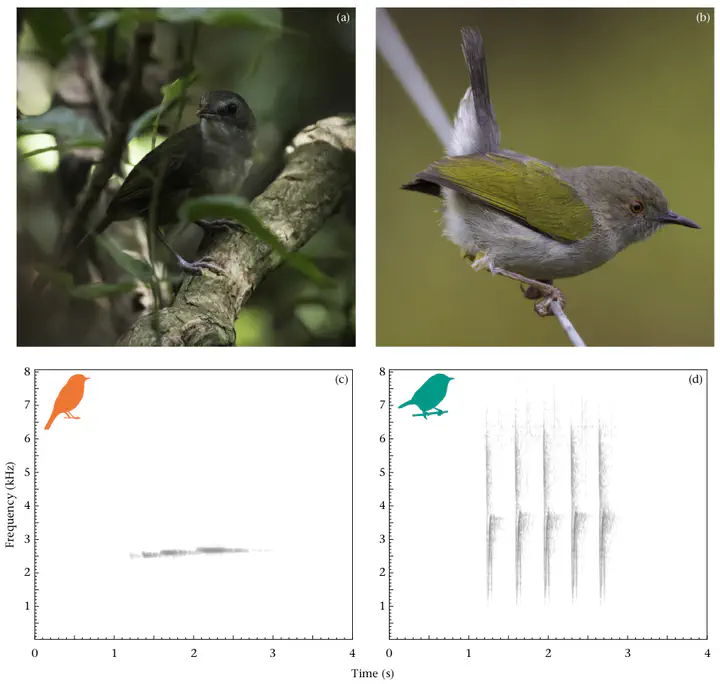Contrasting acoustic-space competition avoidance strategies in Afrotropical forest birds
 Staniewicz et al. 2024
Staniewicz et al. 2024Abstract
Acoustic signals are of critical importance to songbirds which rely on them for mate attraction and territorial defence. Interference caused by sounds that overlap in frequency and time can disturb or mask signal detection. While species differ in their song spectral properties, duration and composition, the limited acoustic space may lead to evolution of behavioural strategies aimed at minimizing competition. Using playback experiments we tested whether tropical forest songbirds use temporal or spectral avoidance to reduce competition for acoustic space. We focused on two species with different song spectral ranges; green-backed camaroptera, Camaroptera brachyura, with a broad-spectrum song, and scaly-breasted illadopsis, Illadopsis albipectus, which produces a narrow-spectrum song. We found that scaly-breasted illadopsis avoided both temporal and spectral overlap. By contrast, in green-backed camaroptera, there was no difference in the number of songs produced between the periods of silence and noise. However, when we varied the frequency of the noise, green-backed camaroptera increased the song rate during the playbacks of noise with maximal spectral overlap, suggesting increasing signal redundancy. Our results show that competition avoidance strategies may be species specific and could be related to the spectral frequency range of the species.